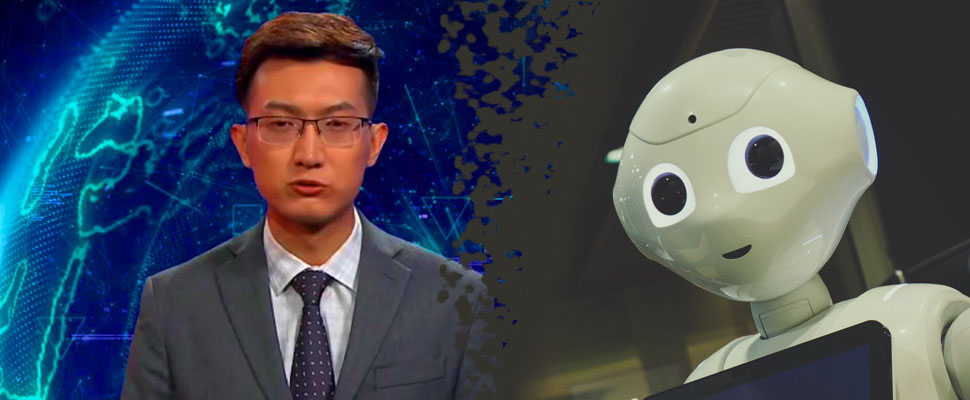Do you believe that artificial intelligence could replace us?
Will our fears become true? Can artificial intelligence replace human beings in their jobs? Find out here

On November 7, the Xinhua news network of the Chinese government had a very unusual broadcast: the news was presented by a humanoid. At first glance, it seems that it was a human being who is talking, because although his gestures are not so natural and his tone of voice is extremely neutral, what would be his face has completely the appearance of a human being and seems to be real.
Leer en español: Nuestros temores se harán realidad: la inteligencia artificial podría reemplazarnos
According to an official statement from the news network, the humanoid can speak in Mandarin and English and can operate for 24 hours straight. During the broadcast, the artificial intelligence anchor mentions that "the development of the media industry requires continuous innovation and a deep integration of the most advanced technologies." He also said: "I will work tirelessly to keep you informed as my system will receive texts without interruption."
Can the advance of artificial intelligence affect employment?
Since the Industrial Revolution, several jobs have been automated over the years, which meant that some people lost their jobs to be replaced by a machine. From this has generated the fear that the human being is replaced by the machine in all aspects, fear that has increased with the fast technological advance of artificial intelligence.
Keep in mind that these replacements have not brought social or economic crises, because they have created new specialized jobs in the creation, design, and maintenance of these machines. But with cases like the one of the news anchor, people can be alarmed even more, because in this case a person is being replaced and no a specific job.
You can also read: The fourth industrial revolution: Will robots steal our jobs?
However, we have lived through these abrupt changes in the technological field for almost 200 years and we have adapted to them. One of those adaptations has been precisely to create new forms of employment in favor of artificial intelligence. Can artificial intelligence, then, affect employment opportunities? Yes, it can. But not at critical levels and there will also be new opportunities.
How was artificial intelligence born?
Artificial intelligence arose when Alan Turing, the creator of the Turing machine, consolidated the term 'artificial intelligence' as a field and proposed a way to determine if a machine is intelligent or not; besides defending the idea that human intelligence could be emulated in a machine. That is why Alan Turing is recognized as the father of artificial intelligence.
Over time, artificial intelligence has improved to the point of answering questions that can only be answered by thinking like a human, in addition to being able to make sense of ambiguous ideas and generate own ideas from others already planted in its system. Equally incredible is what has been achieved with the physical appearance of these machines, which can even be confused with human beings by their level of detail and mobility that, despite not being perfect, has been improving in recent years.
LatinAmerican Post | Vanesa López Romero
Translated from "Nuestros temores se harán realidad: la inteligencia artificial podría reemplazarnos"
* The opinion of the editor does not represent the average
Listen this article





